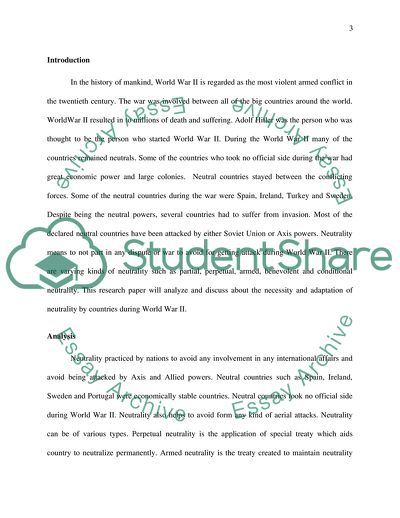Cite this document
(Why and How did Countries Maintain their Neutrality during World War II Research Paper Example | Topics and Well Written Essays - 2000 words, n.d.)
Why and How did Countries Maintain their Neutrality during World War II Research Paper Example | Topics and Well Written Essays - 2000 words. https://studentshare.org/history/1827206-why-and-how-did-countries-maintain-their-neutrality-during-world-war-ii
Why and How did Countries Maintain their Neutrality during World War II Research Paper Example | Topics and Well Written Essays - 2000 words. https://studentshare.org/history/1827206-why-and-how-did-countries-maintain-their-neutrality-during-world-war-ii
(Why and How Did Countries Maintain Their Neutrality During World War II Research Paper Example | Topics and Well Written Essays - 2000 Words)
Why and How Did Countries Maintain Their Neutrality During World War II Research Paper Example | Topics and Well Written Essays - 2000 Words. https://studentshare.org/history/1827206-why-and-how-did-countries-maintain-their-neutrality-during-world-war-ii.
Why and How Did Countries Maintain Their Neutrality During World War II Research Paper Example | Topics and Well Written Essays - 2000 Words. https://studentshare.org/history/1827206-why-and-how-did-countries-maintain-their-neutrality-during-world-war-ii.
“Why and How Did Countries Maintain Their Neutrality During World War II Research Paper Example | Topics and Well Written Essays - 2000 Words”. https://studentshare.org/history/1827206-why-and-how-did-countries-maintain-their-neutrality-during-world-war-ii.


